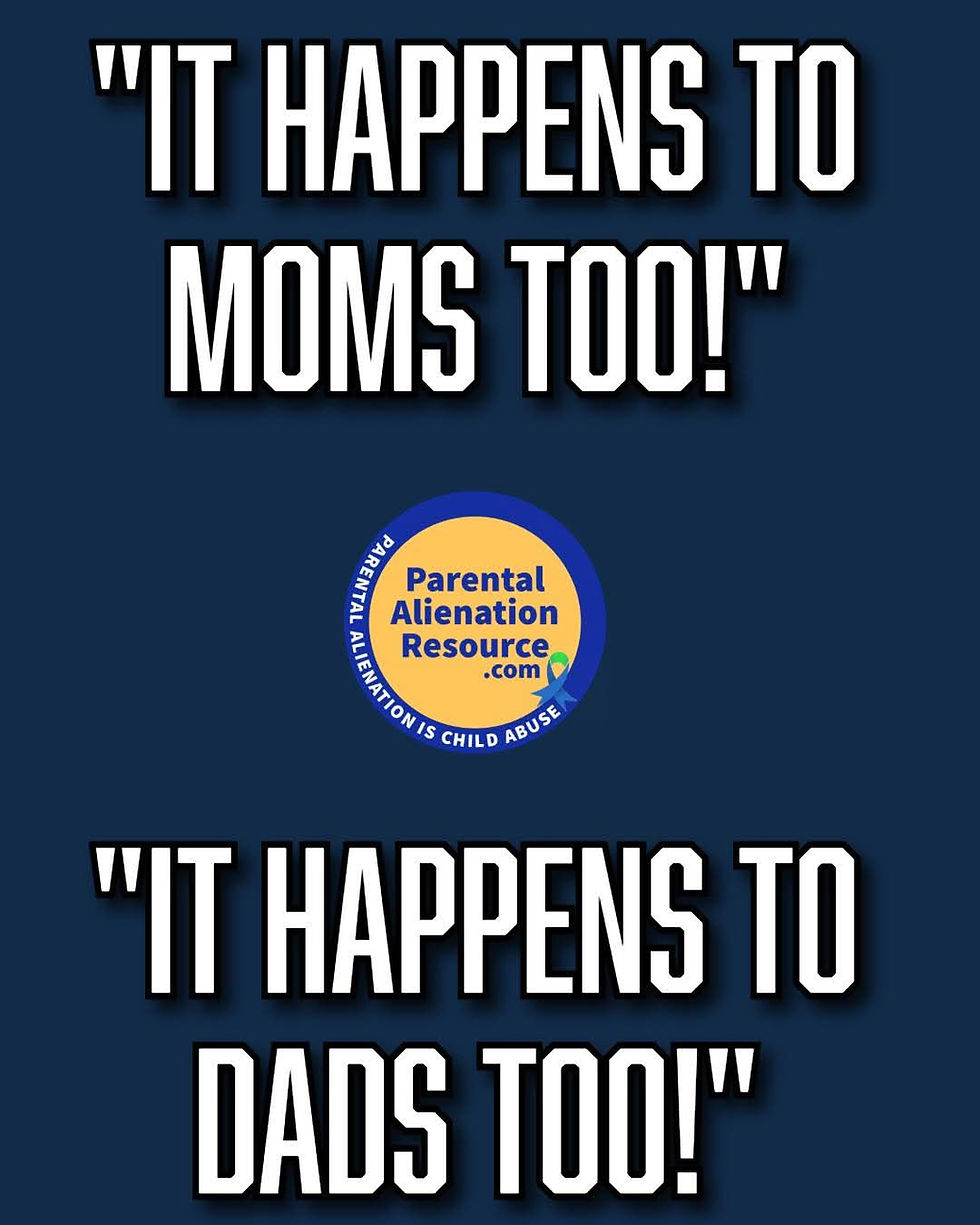What Are Some Signs That Me & My Child(ren) May Be Victims of Parental Alienation?
- Aug 6, 2023
- 1 min read
Updated: Aug 13, 2023

There are several signs or indicators that a child may be experiencing parental alienation. These can include:
Rejection of the targeted parent: The child consistently expresses strong negative feelings toward the targeted parent without any justified reasons.
Unjustified anger or hostility: The child displays intense anger or hostility toward the targeted parent, often surpassing what would be expected based on the parent's behavior.
Lack of ambivalence: The child's negative feelings toward the targeted parent are not balanced with positive or neutral feelings. They may refuse to spend time with or talk about the targeted parent altogether.
Parroting alienating statements: The child uses phrases or statements that seem rehearsed or scripted, which may reflect the influence of the alienating parent or other individuals involved.
Absence of guilt or empathy: The child shows a lack of guilt or empathy for how their behavior or words affect the targeted parent. They may not recognize the harm they are causing or remain indifferent to it.
Refusal to visit or spend time with the targeted parent: The child consistently refuses to have contact or spend time with the targeted parent, even if there were prior positive experiences or a close relationship.
It's important to note that these signs alone may not definitively indicate parental alienation, as there can be other factors at play. However, if you notice a combination of these signs and a consistent pattern of rejecting behavior, it may be worth exploring the possibility of parental alienation and seeking professional help.





Comments